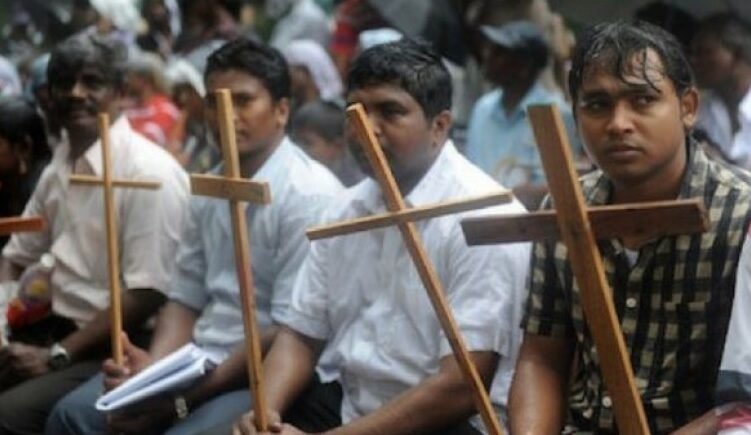
DELHI — As 2024 draws to a close, the Christian community in India reflects on a year marked by increasing challenges and persecution.
Data from various organizations paint a sobering picture of the difficulties faced by this religious minority, which comprises approximately 2.3% of the country’s population.
On June 24, Bindu Sodhi, a Christian resident from the Indian state of Chhattisgarh, was killed due to her faith. Villagers, including some of her close relatives, had been obstructing her from plowing a field because of her Christian beliefs. After lodging a police complaint against them, her family resumed their farming activities.
Later that evening, a group of villagers and relatives — armed with bows, arrows, axes and knives — launched a brutal attack. Bindu Sodhi was caught and killed, her throat slit during the assault. Following her death, her body was kept at a hospital in Dantewada, as the villagers refused to allow her burial on village land.
Running through Dec. 31, NewsMatch and The Media Project will match your donations up to $1,000. Your generosity will help keep Religion Unplugged going in 2025. You can donate here.
In another incident, this one in Punjab, a member of a church was brutally assaulted by religious extremists during a prayer service. The attack left him with critical injuries, including severe head trauma. He was hospitalized at a Christian medical college in Ludhiana. Despite receiving medical care, Bhagwan Singh succumbed to his injuries on Feb. 19.
These two incidents highlight the challenges faced by the Christian community in various parts of India. According to the data collected by the United Christian Forum, a human rights organization, a total of 585 attacks have happened against the Christian community through September 2024.
To address the growing violence against the Christian community, UCF also submitted a detailed report to Kiren Rijiju, a federal minister for minority affairs in India. The memorandum highlighted that a primary reason for these attacks had been false allegations of fraudulent conversions.
It also mentioned how two areas — Uttar Pradesh and Chhattisgarh — recorded the highest numbers of such incidents, with 156 and 127 cases respectively, involving either attacks on individuals during prayer or their unlawful detention by local authorities. The memo further highlighted a disturbing trend, where authorities have regularly arrested Christians at the behest of Hindu nationalist groups who have filed complaints.
The rise in violence against Christians is compounded by legal challenges, particularly the implementation and tightening of anti-conversion laws in several states. Uttar Pradesh, for instance, has arrested 1,682 people under its anti-conversion law in the past four years. Currently, 12 states in India have passed anti-conversion laws, reflecting the growing influence of Hindu religious nationalism.
The violence in Manipur has indeed contributed significantly to the rise in attacks against the Christian community in India. The situation in Manipur represents a particularly severe and concentrated outbreak of violence that has disproportionately affected Christians.
In May 2023, ethnic tensions between the predominantly Christian Kuki-Zo tribe and the majority-Hindu Meitei people erupted into widespread violence.
This conflict has resulted in devastating consequences for the Christian community, with reports indicating that over 230 churches were burned down, more than 1,000 Christian homes and institutions were destroyed and at least 60 Christians killed. The scale of destruction is staggering, with some sources citing even higher numbers — up to 300 churches burned and around 30,000 people displaced.
The plight of Christians in India has drawn international attention, with organizations like Human Rights Watch and Amnesty International calling for stronger protections.
In October, the U.S. Commission on International Religious Freedom (USCIRF) recommended that India be designated a “country of particular concern” due to deteriorating conditions for religious minorities.
However, the Indian government has dismissed such criticisms — asserting that it upholds religious freedom and labeling reports of persecution as exaggerated.
Christian leaders and organizations have been vocal about the increasing persecution.
Catholic Archbishop Peter Machado of Bangalore expressed awareness of “overt and covert attacks on the Christians in many parts of our country, especially in Chattisgarh and Uttar Pradesh,”
The United Christian Forum has appealed to Indian lawmakers to end the violence and take strict measures against the perpetrators of such crimes.
As 2024 comes to a close, the Christian community in India faces an uncertain future. The sharp rise in attacks, coupled with legal challenges and institutional pressures, paints a picture of a minority under siege. The persistence of violence — often with apparent impunity — raises serious concerns about religious freedom and minority rights in the world’s largest democracy.
The coming year will be crucial in determining whether this trend continues or if measures will be taken to protect the rights and safety of this Christian minority. As the international community watches, the response of the Indian government and civil society to these challenges will be a significant indicator of the country’s commitment to religious pluralism and minority rights.
Rishabh Jain is an independent journalist based in Delhi. Follow him at @ThisIsRjain.
5965 Village Way, Ste 105 255
San Diego, CA 92130
info@themediaproject.org
Religion Unplugged is part of The Media Project and a member of the Institute for Nonprofit News.
EIN: 83-0461425
Site design by Peter Freeby
